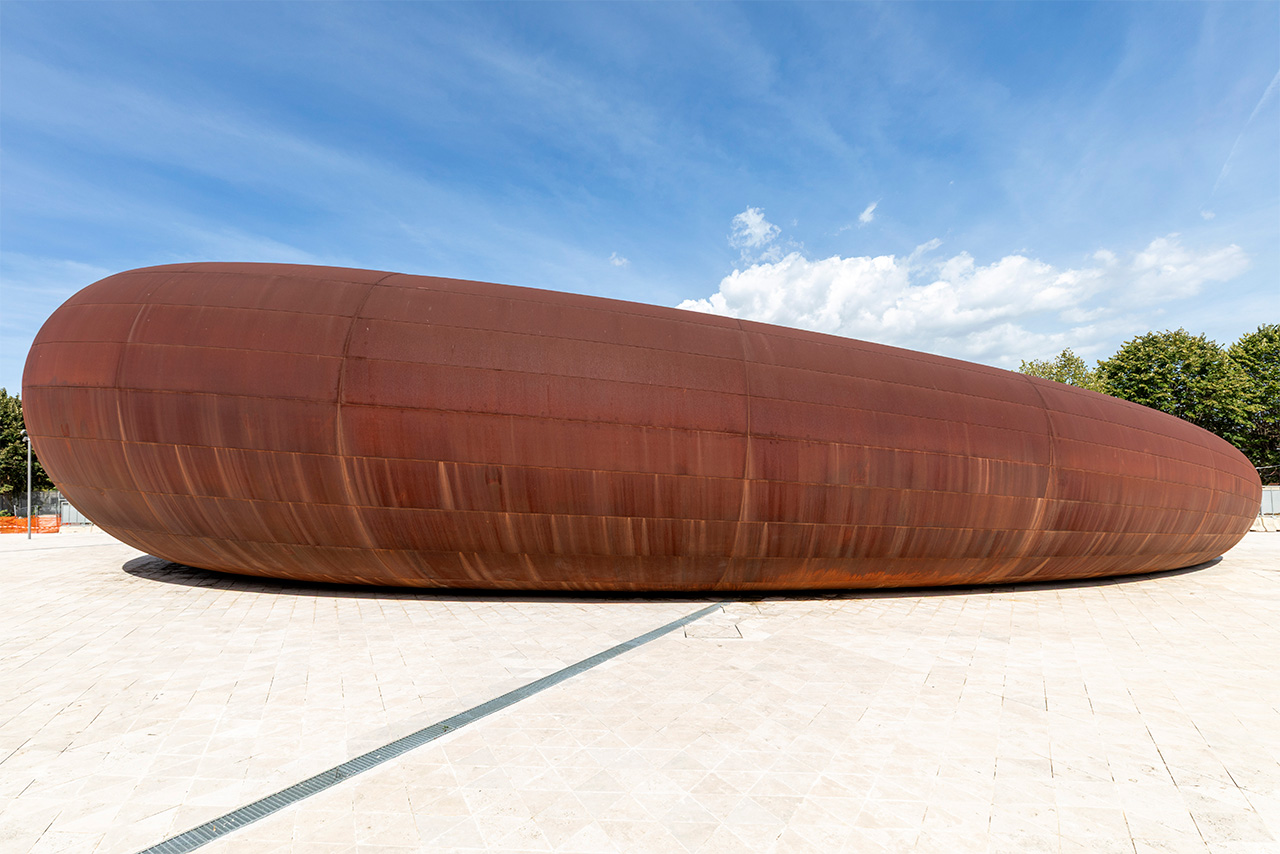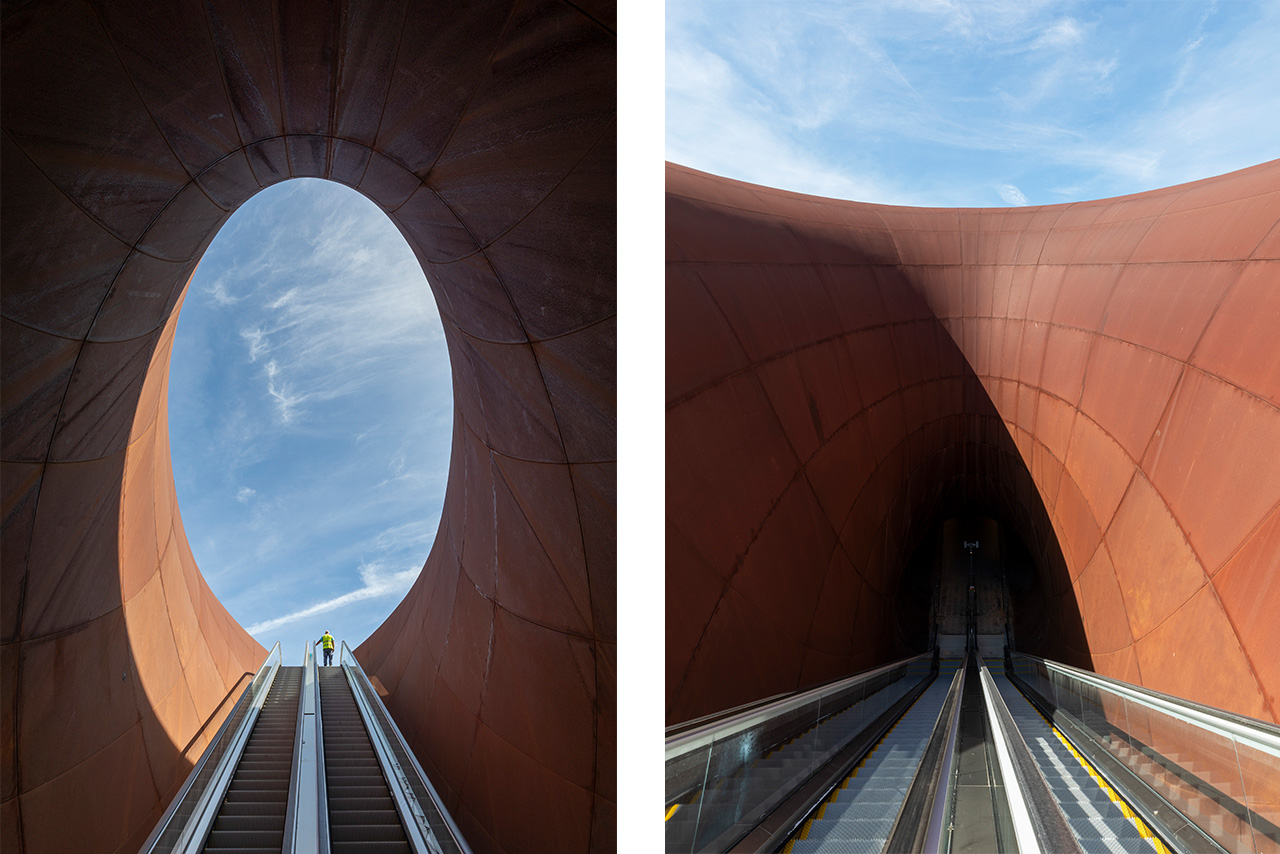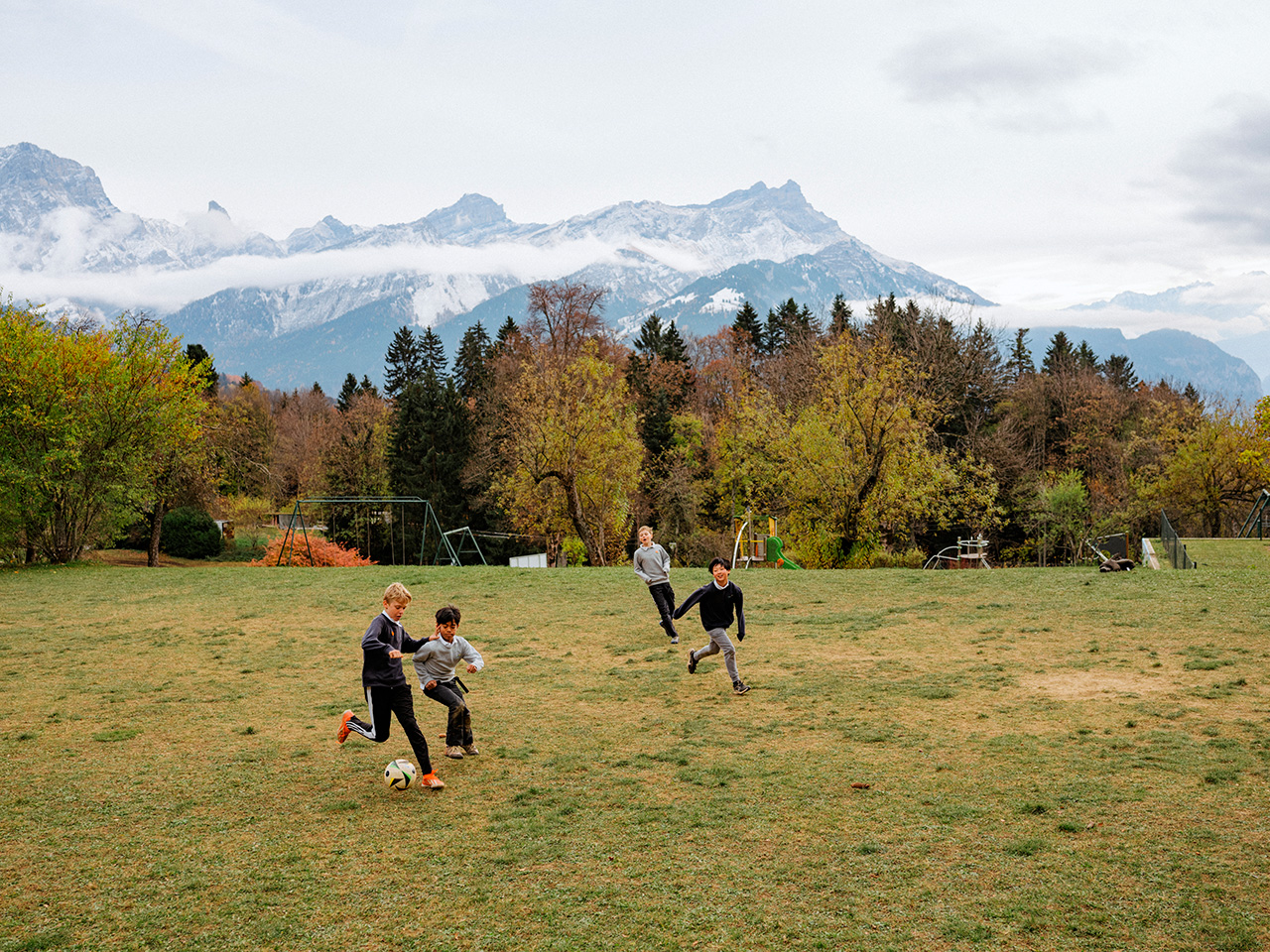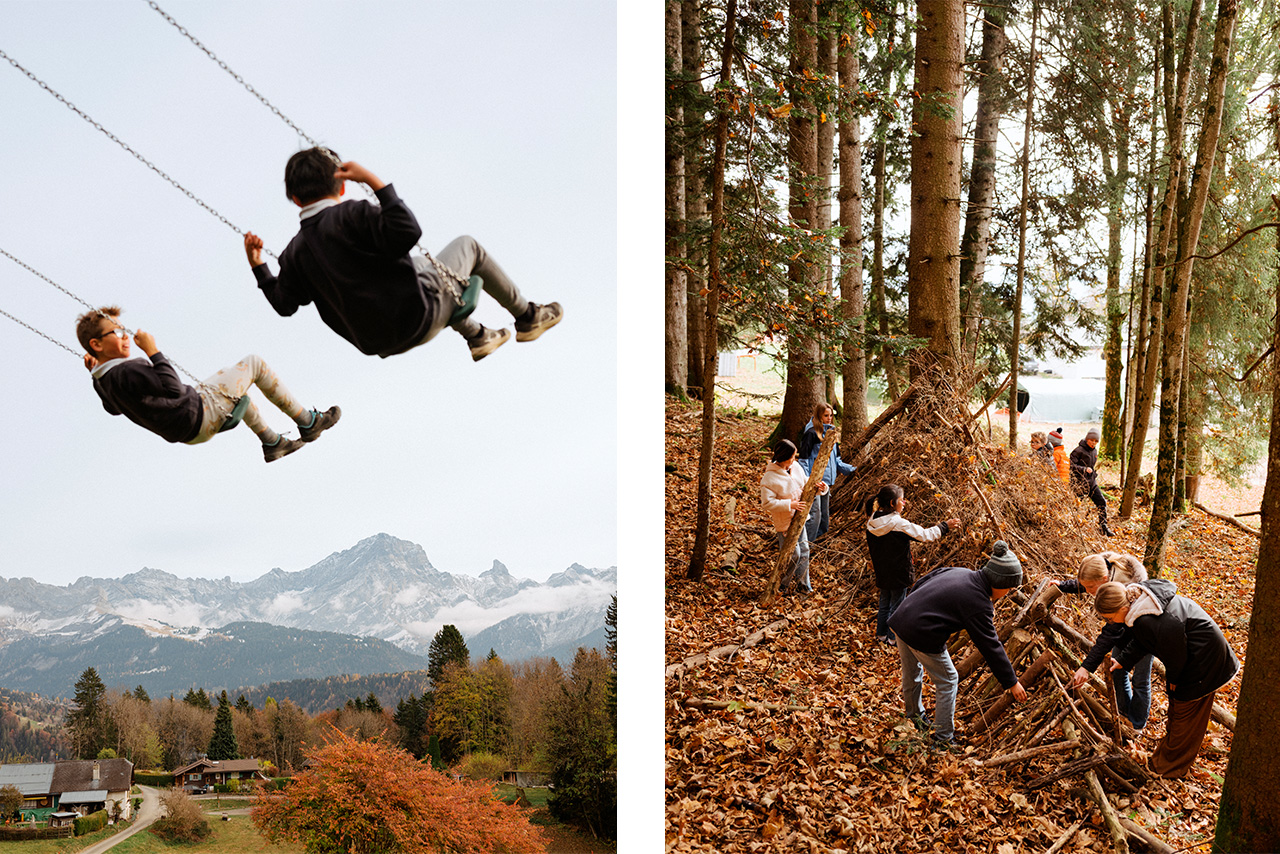Naples’s new Anish Kapoor-designed station, Chien Bleu’s bottled brews and Switzerland’s most remote boarding school.
|
Thursday 11/9/25
|

|
|
London
Paris
Zürich
Milan
Bangkok
Tokyo
Toronto
|
|
|
|

Good morning from Midori House. For more news and views, tune in to Monocle Radio or visit monocle.com. Here’s what’s coming up in today’s Monocle Minute:
THE OPINION: Taiwan struggles for defensive morale
TRANSPORT: Naples’ new Anish Kapoor-designed station
DAILY TREAT: Chien Bleu’s bottled brews
FROM MONOCLE.COM: Switzerland’s most remote boarding school
|
|
While China seems at the ready, is Taiwan?
By Clarissa Wei
|
Taiwan is racing to fortify itself against the possibility of conflict with China. Fighter jets roar across the divide, new weapons deals are signed and the defence budget keeps on climbing – but Taiwan just doesn’t have the manpower. This week, satellite imagery showed large-scale developments of airports and ports for amphibious vehicles on Chinese islands in the East China Sea. It’s believed that these could be used to launch an invasion of Taiwan, which US officials warn Beijing would be ready for as soon as 2027. But on the ground in Taipei, armed forces remain significantly under-manned: active units are only about 80 per cent staffed. Meanwhile, the island’s draft-age population has fallen from about 138,000 in 2017 to 118,000 in 2022 – a decline that could pose even greater challenges by the end of the decade.
To plug the gap, Taipei has restored year-long conscription, raised the monthly allowance for volunteers and leaned heavily on advertising to court a sceptical generation. City buses and metro stations now carry glossy posters styled after video games and action films – the Ministry of National Defense’s (MND) attempt to make service look less dutiful and more aspirational.

Under the gun: Taiwanese conscripts taking part in a live-fire exercise
Major General Fu Cheng-jung, who oversees recruitment and training at the MND, says that’s by design. “We want to follow the pulse of society,” he explains. “If we want to attract young people, the posters need to resonate with their world.” Beyond the visuals, Fu stresses that military service offers training, dignity and post-service support. “We want service to be meaningful. Soldiers gain skills, education and when they leave the state helps with employment and transition,” he says.
But experts say that such measures barely scratch the surface. “Many Taiwanese people associate the military with antiquated, rigid bureaucracy,” says William Yang, a senior Northeast Asia analyst at the International Crisis Group, who sees the shortfall as less of a marketing issue and more about mindset. “There’s a saying that men only become professional soldiers when they don’t have anything else to do,” he adds. That perception lingers, even as the military loosens rules on height restrictions or tattoos and organises events to showcase day-to-day life in uniform.
Low pay has long compounded the problem. Grassroots soldiers earn far less than their peers in the private sector and only this June did lawmakers agree to boost monthly allowances to NT$30,000 (€840), a figure that still leaves the military struggling to compete for skilled recruits.
The larger challenge, though, is cultural.“It has to do with the risk-averse nature of Taiwan in general,” says Yang. This mindset extends beyond recruitment and reflects Taiwan’s broader cross-strait strategy, where de-escalation is consistently preferred over confrontation. In other words, the same instinct that makes Taiwan cautious in diplomacy also discourages young people from enlisting.
Maj Gen Fu points to modest gains: several hundred more soldiers recruited this year than last and a 2.8 per cent rise in re-enlistment. But bigger obstacles remain – shrinking birth rates, morale issues and training bottlenecks. The posters mirror his optimism: “Defend, stand firm” and “Guard with courage”. While the frogmen and Black Hawk helicopters depicted in the posters might catch eyes at a bus stop, they alone won’t fill a barracks. Deterrence will depend on more than slogans; it will require pay that competes, training that produces capable forces and a broader recruiting base that includes women and specialists. Against a formidable neighbour and with a long-term ally in the US that can no longer be fully relied upon – Taiwan must override its reflex to de-escalate.
Clarissa Wei is a US journalist based in Taiwan. For more opinion, analysis and insight, subscribe to Monocle today. For Monocle’s September issue, we explored how global defence forces are struggling to fill their ranks, unveiling the surprising and strange tactics being used to recruit Gen Z.
|
|
BARCELONA TURISME  MONOCLE MONOCLE
|
|
transport: italy
Naples’s new Anish Kapoor-designed station arrives fashionably late
The silver lining found in waiting for tardy Italian transport is that, at least in Naples, the stations are worth spending time in (writes Rory Jones). Artist Anish Kapoor’s new Neapolitan station, the Monte Sant’Angelo Subway, is finally opening to the public today – almost two decades after it was commissioned in 2003.

True to form: Fresh exemplar of Kapoor’s signature curvaceous style
The station’s new grand and elemental exterior is a long and curving form with the terracotta hue of earthenware and represents the latest piece in a network of artist-designed stations across the Campania capital.

Blue-sky thinking: The sculptural entrance was designed to seem as though it grew from the earth
Naples transformed much of its Metro system a decade ago, with new stations designed by artists and architects such as Òscar Tusquets Blanca and Alvaro Siza. Despite its late arrival, Kapoor’s shapely station will be welcomed by commuters, who tend to enjoy a little theatre and design while on the move. As much of Europe struggles to keep trains running on time, other cities should take note – where can matter almost as much as how long you wait.
|
|
• • • • • DAILY TREAT • • • • •
Raise a glass for Chien Bleu’s bottled brews
Thirsty for a tipple that tastes more like a tonic? Julien Manetti set up microbrewery Chien Bleu in Geneva after discovering the gut benefits of natural fermentation. Manetti, who was a medical student at the time, was keen to introduce homemade yeasts and barrel-ageing techniques to shake up the straight-laced Swiss beer market.
Brewed in barrels by the Rhône, the result is a selection of craft beers with notes of apple, pear, orange and peach. For something a little lighter, Monocle’s pick is the brewery’s highly quaffable cider blended with elderflowers, a cherry wine and muscat. Easy does it.
chienbleu.ch/brasserie
|
|
What €74,000 a year will buy you at Switzerland’s most remote boarding school
Prefleuri means “meadow in bloom”, which is an apt descriptor for how headmistress Sylvie Ducas treats pupils at the Alpine school that she leads (writes Claudia Jacob). Tucked away on a single-track road at an altitude of 1,200 metres, Préfleuri isn’t your average Swiss boarding school. When Monocle visits, deer, foxes and squirrels tread tentatively among the season’s first substantial snowfall. In this remote setting, 2km outside the village of Villars-sur-Ollon in the Vaud canton, Préfleuri is a global microcosm.

High spirits: Playing football under serried peaks

In full swing: Students enjoying an environmental education
“We welcome children from all over the world to develop, surrounded by plentiful nature where the air is clean and they feel secure,” says Ducas. In the mixed cohort of children aged between three and 13, there are as many as 14 nationalities from around the world.
Established in 1948 by Willam and Lucienne Bonzon, Préfleuri began as a children’s holiday camp on a farm on which attendees were given lessons on flora and fauna for the summer. Ducas, who attended as a child, found comfort in the open-minded, international environment. Since acquiring the school from the Bonzon family in 1996, Ducas has grown the estate to two hectares and established a year-round academic programme. Fees for boarding seven days a week are CHF70,000 (€74,000) per annum but local pupils can opt for day school at CHF17,850 (€19,000).
Discover why a nature-based education offers a true breath of fresh air. Read the full report here.
|
|
|
Sponsored by Barcelona Turisme
|
|
|
|
|
|
Monocle Radio: MONOCLE ON FASHION
Michael Kliger, Mytheresa’s CEO, returns
| | | | |